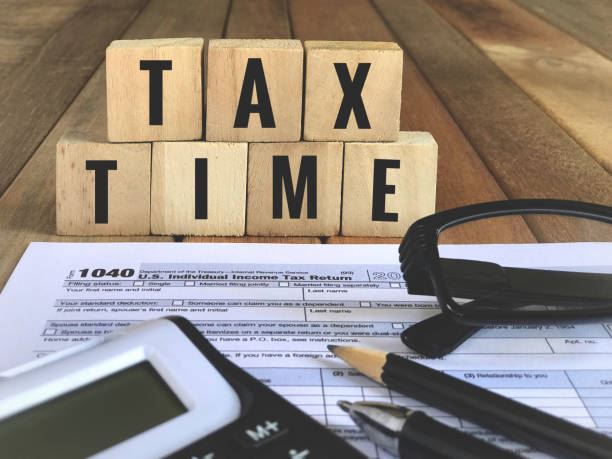
There are several vital things you need to know before tax season. It’s important to make sure you are all caught up, organized and ready to file your taxes.
“Benjamin Franklin said that nothing is certain but death and taxes, and in both cases, fear comes from the great unknown. With taxes, at least, you can relieve your stress by organizing your paperwork. Anticipate the categories and specific information you'll need, and tax time can be as simple as filling in the blanks.”
- Julie Bestry, Best Results Organizing
Tax time and preparing for your taxes often overwhelms us all at one time or another. However, it doesn't have to be a stressful, intimidating process if you prepare yourself throughout the year.
Like most things in life, time and preparation goes a long way. Preparing your for tax filing is no different. NAPO GA has compiled a list of tips and tricks to help you prepare for filing your taxes now and for moving forward.
1. Hire a Professional to get organized
Getting organized and staying organized is a lot easier with the help of a professional. People often overlook the possibility of hiring a professional organizer for organizing their personal files and finances. This helps with more than taxes. It can have a positive impact on future retirement and estate planning. Julie continues:
“Most of the stressors related to preparing your taxes come from not having an easy, logical system. Instead of looking in drawers and envelopes, under beds and on top of shelves, work with a professional organizer to create a system for anticipating what documents you'll need and developing a smart, secure way to sort and store them. Partnering with a professional organizer will save time (your own and your accountant's) and that will save you money.”
2 Look for local tax preparation or CPAs
A tax preparer helps you get ready for the upcoming tax season and all future tax preparation. Look for more affordable options in your area so that you can save some of your hard-earned cash while paying off your taxes. As your finances diversify and grow, you might find it necessary to hire a CPA. Most financial planners can recommend qualified trustworthy consultants.
3. Keep track of current bank information
With taxes, you want to make sure everything is in place before moving forward. Try to avoid further issues by consistently updating bank and credit card information. Keeping a monthly budget of expenses helps immensely. Julie says:
“If paper overwhelms you, consider using a digital financial dashboard like Mint or Personal Capital to track your income, expenses (by budget category or vendor), investments, and credit card and loan obligations. These kinds of dashboards let you set budgets, view transaction history, and visualize your financial life in one centralized location.”
4. File an extension for paperwork (if needed )
Make sure to file an extension if you’re behind on your taxes. This is quick and easy to do and has no financial impact, other than giving you more file time for focusing on breaking even this year!
5. Go ahead and prepare for next year
It’s never too early to start preparing for the next tax season. Michelle Cooper of Put it There Professional Organizing suggests:
“Consider a financial software program, such as Quicken. The time spent setting it up is well worth it! Printing a report of your various spending categories takes all of 2 minutes to then share with your CPA. If you prefer paper, then purchase an accordion folder with the designated tax categories and put papers in it throughout the year”
Keep all tax files in an accessible place so you don’t lose any important information, and don’t have to search for it at the last minute. Julie expands on the point with:
“Create a file folder labeled 2022 Tax Prep. When your 2021 taxes are done, make a list of all of the supporting documents you needed this year (W2s, 1099s, 1098s, etc.) and pop the list in the folder so that you'll know what to keep an eye out for starting late January 2023. As the year goes along, any time you make a charitable donation, drop the receipt in that tax prep folder. And any time something happens that seems like it would trigger a taxable event (sell a house? have a baby? win the lottery? Lose in Vegas?), put a note in the folder. You'll be amazed at how some things will escape your memory by the end of a year. Just having this folder ready to accept your documents and notes as they arise will help you be confident nothing will be forgotten.”
If you are working with a CPA or financial planner, together you can identify ways to invest and spend that benefit you financially. These types of opportunities are easy to identify ahead of time but hard to retrofit when preparing to file, so plan ahead.
Starting in April, or even January, is often not good enough when it comes to preparing your personal taxes. As we grow older, personal and professional life will scale with age. Making sure you are organized and prepared year round is important. For example: tracking your mileage, saving receipts for home improvements and charitable contributions in a designated place. That way when it comes time to prepare and file your taxes you are not stressing over digging out all the necessary paperwork and receipts needed. Plus, if you get selected for a random IRS audit, you will have all the documentation you need at your fingertips.
Preparing for your taxes can be effortless and a pleasant experience if you plan ahead and hire help. Learn more about organizing your personal files and going paperless at home. And for more tax tips from Julie Bestry visit her blog here.
